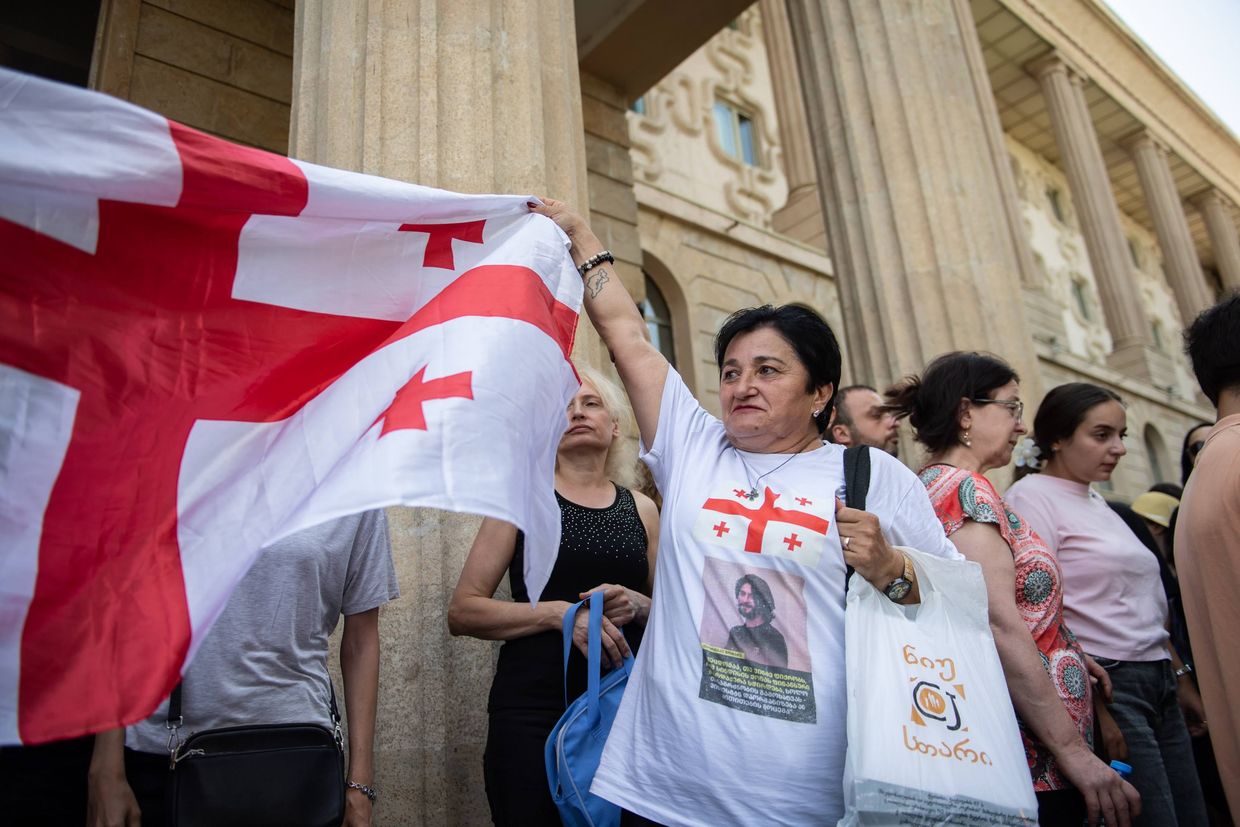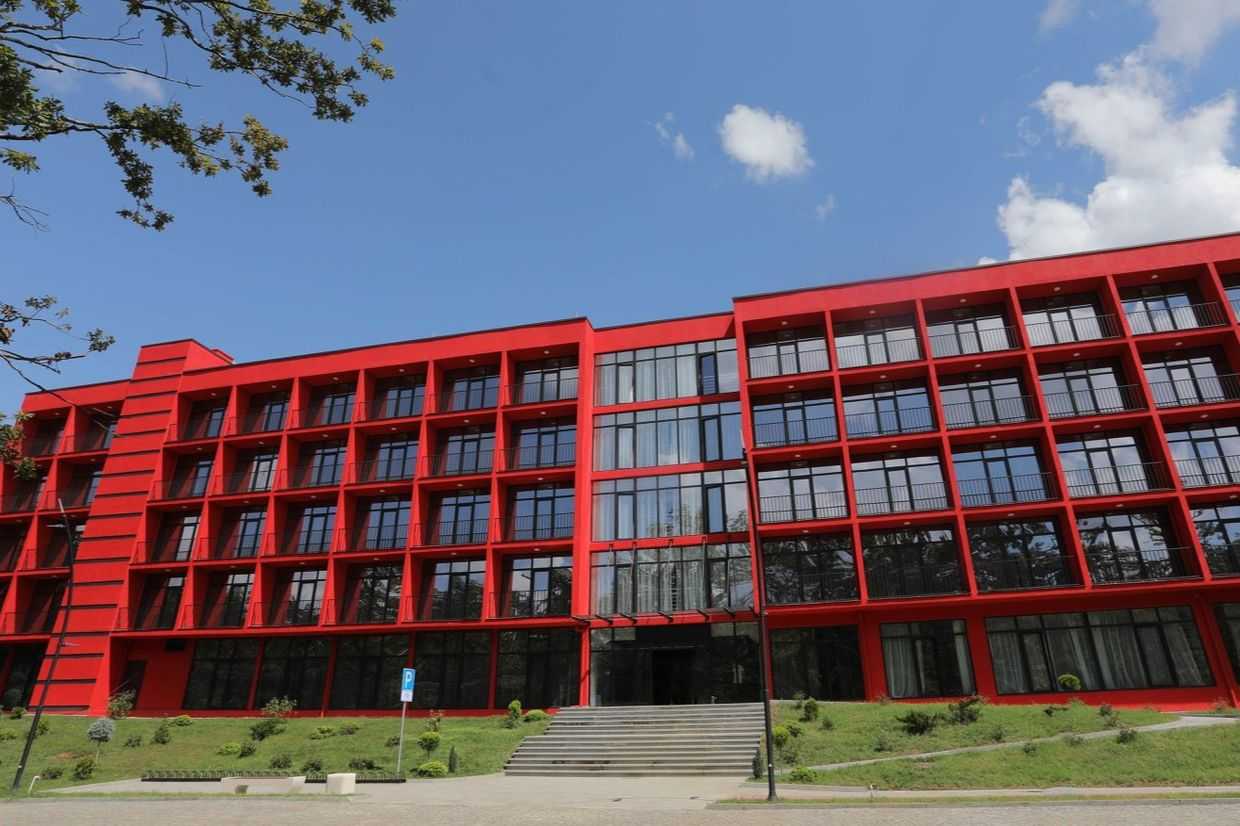
Georgian police detained at least 16 people in central Tbilisi as they protested the work of Georgian Dream’s anti-opposition parliamentary commission. The commission, which presented its conclusions on Tuesday, placed particular emphasis on assigning responsibility to the former ruling United National Movement (UNM) party for the August 2008 War.
The protesters initially gathered at the rear entrance of parliament, coinciding with a plenary session during which the commission’s conclusions were presented by its chair, Georgian Dream MP Tea Tsulukiani.
Later, they moved to the entrance used by ruling party lawmakers to leave the building, shouting at them as they departed. The demonstrators then marched onto nearby Rustaveli Avenue, where police began making detentions.
In a later statement, the Interior Ministry said the protesters ‘did not comply with the police’s lawful order’ not to block the roadway, leading to the detention of 16 people.
Look how they are almost strangling our @DroaParty member and veteran activist Shushana Matsaberidze! This time she was just standing for herself on the pavement and even reproached me for being in front. The police just recognizes her and wants to get rid of her.… https://t.co/qPTwOfqHgO pic.twitter.com/HT1GtnlQtX
— Marika Mikiashvili 🇬🇪🇺🇦🇪🇺 (@Mikiashvili_M) September 2, 2025
According to activists, the number of detainees is higher and may exceed 20.
Videos showed police detaining protesters at various points along the avenue at intervals, with some being dragged and forced into police cars.
Many of the protesters who gathered near parliament had come from Tbilisi City Court, where two hearings were held hours before. During these proceedings, nine demonstrators detained in the early phase of the ongoing anti-government protests were tried and sentenced to varying prison terms.
After the hearings concluded, some of those gathered at the court in solidarity with the prisoners decided to move to parliament to protest the Georgian Dream commission.
Georgian Dream’s commision
The controversial commission was set up in February ostensibly to investigate the ex-ruling United National Movement’s (UNM) time in power, following repeated pledges by Georgian Dream to punish the party, labelled as a ‘criminal regime’ by the current authorities.
Initially, its mandate was limited to the UNM’s years in government (2003–2012), but it was later expanded to cover the period up to the present day — effectively giving Georgian Dream free reign to target virtually any opposition figure.
Several opposition politicians boycotted the commission and did not appear despite being summoned, leading to their prosecution and months-long pretrial detention.
The commission completed its work in August, and on Tuesday, Tsulukiani presented a report that the ruling party said spans 471 pages.
Among critics of Georgian Dream, the commission’s suggestions of Georgia’s responsibility for the 2008 war provoked particular outrage. In parallel with the commission’s work, Georgian Dream representatives openly stated that the war had been started by Georgia’s then-government.
Critics argued that this rhetoric downplayed Russia’s responsibility for the war. Family members of fallen soldiers of the Georgian Army, as well as some current and former military personnel, joined the criticism.
The parliamentary commission was composed of members of Georgian Dream and its satellite party, People’s Power.
Both the commission’s work and other parliamentary activities — including the adoption of restrictive laws targeting dissent — have been carried out by Georgian Dream amid an opposition boycott of parliament, allowing the ruling party and its allies to exercise full control over the legislative body.











